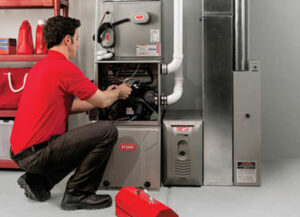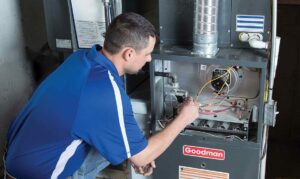Difference of Residential and Commercial Plumbing
Recognizing the difference between commercial plumbing and residential plumbing is a crucial aspect of commercial plumbing.
Commercial plumbing involves the installation, maintenance, and repair of plumbing systems in commercial establishments. In contrast, these plumbing systems are more prominent and far more complex than residential systems. While DIY plumbing is possible for residential systems, commercial plumbing systems often require the assistance of a trained professional. In addition, strip malls, high-rise offices, universities, hospitals, warehouses, and multipurpose buildings fall under commercial space. Commercial plumbers also service extensive condominium complexes and apartments.
On the other hand, Residential plumbers provide plumbing services to single-family homes, smaller apartments, partly-detached townhouses, and condominium complexes. Generally, residential plumbing isn’t as complicated or cumbersome as commercial plumbing. However, this depends on the layout and systems of the residential building.
The Risk Level
Commercial plumbers are better suited to deal with high-risk plumbing issues in commercial buildings. For instance, a broken pipe affecting more than ten floors in a commercial building can cause devastating damage to the offices and businesses occupying the building.
Commercial plumbers must abide by strict codes and healthcare regulations when working in restaurants and other establishments in the food and beverage industry. Moreover, a commercial specializes in residential and commercial plumbing services, including replacing old heaters, water boilers, and furnaces with modern and more efficient ones.
The Complexity of the Building Structure
Navigating the plumbing system in residential buildings is much easier than the extensive and complex piping systems in commercial buildings. Commercial spaces have multiple floors in which scores and hundreds of tenants and clients regularly use the many sinks and toilets. That’s why, commercial plumbers also have to consider the water pressure, especially when it comes to high-rise buildings.
The Size
Size is a critical factor in commercial plumbing. So, when dealing with plumbing systems in large properties such as businesses, malls, and apartment complexes, the job will be more extensive and demanding than working on a residential plumbing system.
Due to their size, these buildings use piping systems that are significantly different from residential properties. Thus, they require commercial plumbing services.
One of the most significant issues with commercial plumbing systems is that they can impact the entire building and those using it if anything goes wrong. For instance, all other floors could be affected if a pipe bursts on the seventh floor.
However, if a plumbing issue occurs in a residential property, the extent of the damage is limited to the affected house. It is highly uncommon for a burst pipe in one home to affect other homes in the neighbourhood, even the direct neighbour.
Compared to commercial plumbing, residential plumbing work can be completed much faster and affects fewer occupants since residential properties use fewer outlets and occupants.
Types of buildings that require commercial plumbing services
Commercial plumbing is both large-scale and complex. Therefore, you might be wondering what kinds of establishments may need the specialized skills of a professionally-trained commercial plumber. The short answer is the majority of public structures. These include:
- Restaurants: Plumbing issues in a restaurant kitchen setting can pose a severe health safety risk. As a result, it deters the chef from properly preparing meals and puts food at risk. For instance, when you don’t have clean and running water, you won’t be able to clean your fruits, vegetables, and other foodstuffs.
- Offices: A backed up breakroom sink, or worse, a clogged or flooding toilet in an office building, not only gives off a wrong impression but also affects workflow and people’s productivity.
- Apartments: You’ve most probably seen that scene on TV where a resident on an upper floor floods their bathtub and ends up crashing into the apartment below. While this is quite rare, faulty plumbing can not only lead to extensive ceiling and water damage. However, it can also affect the structural integrity of your home.
Commercial Pipelining as an Alternative
If you are dealing with pipe or drain problems in your office building, it may be time to consider commercial pipelining. Compared to traditional sewer replacement, pipelining sewer repair offers a faster and cheaper solution.
What is Commercial Pipelining?
If you’ve never heard about commercial pipelining, it is pipelining that doesn’t involve digging up trenches or excavations. As a result, the foundation of your building remains untouched, meaning that you won’t need to rebuild large structures.
Advantages of Commercial Pipelining
Plumbing repairs can be very disruptive to your business. You might need to temporarily close your business, which translates to a loss of valuable time and money. Also, if you choose to keep your business open while the work is going on, you might end up with miserable and disgusted employees and customers due to the unpleasant smells and sight.
In addition, with commercial pipelining, you can have the issue quickly resolved (typically in less than a day) without having to inconvenience your business.
In contrast to traditional pipelining, trenchless pipelining can be up to 75% cheaper. The main reason for the lower costs is that it requires smaller plumbing technicians and doesn’t involve a lot of special equipment.
Moreover, commercial pipelining fixes many issues, including vertical roof drains, sewer drains, parking lot storms, pipes from 2 inches to 84 inches in diameter, and mainline sewers. Also, another great benefit of commercial pipelining is that it can last for 50 years. In addition, you won’t have to disrupt your space with unpleasant smells.






